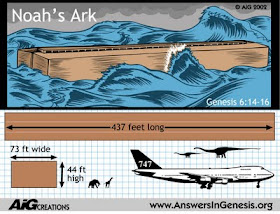
Online the other day, an evolutionist poster went into great detail describing large wooden ships of recent history. In the last couple of centuries, wooden ships have been built that measure 300-400’ – sometimes longer. It’s been our experience, however, that wooden ships this large leak terribly and require constant pumping to stay afloat.
One example of such a ship is the Wyoming: a six-masted schooner 450’ long. It was built in 1909 of 6” thick, pine planks and secured with 90 iron cross-bracings. Even so, it had to be pumped regularly to remove water and eventually foundered in heavy seas in 1924. All souls were lost.
The poster’s point was this: if modern ship builders are not able to build large, water-tight wooden ships, then how could Noah have built the
At first hearing, this sounds like a reasonably objection to the Flood account. But we should not overlook the fact that this is a textbook example of an argument from ignorance (argumentum ad ignorantiam). An argument from ignorance is a fallacious argument that basically states if we don’t know how something was done, then it can’t be – or couldn’t have been – done. In the case of the
Often times, these types of arguments aren’t recognized for what they truly are. The person who makes the claim sincerely believes he has exhausted every possible scenario and found there is no possible solution. But a good way to see how ridiculous these types of arguments are, we need only look at some examples from the past:
Since the time Icarus supposedly built wings and escaped
Arguments about the
Here are some other classic examples of arguments from ignorance:
"There is no reason anyone would want a computer in their home," Ken Olson, president, chairman and founder of Digital Equipment Corp., 1977.
"This 'telephone' has too many shortcomings to be seriously considered as a means of communication. The device is inherently of no value to us,"
"While theoretically and technically television may be feasible, commercially and financially it is an impossibility," Lee DeForest, inventor.
"There is not the slightest indication that nuclear energy will ever be obtainable. It would mean that the atom would have to be shattered at will," Albert Einstein, 1932.
"The bomb will never go off. I speak as an expert in explosives," Admiral William Leahy, U.S. Atomic Bomb Project.
“A wooden ship the size of the
Nice post, RK.
ReplyDeleteIt is amazing how quick some people are to make those kinds of conclusions based on so little actual knowledge. These are the same people that often fall prey to other logical fallacies, too -- e.g., circular reasoning, ad populum, & the ever-popular fallback to ad hominem attacks.
Of course, we Christians are guilty of the same. All the more reason to learn to be critical thinkers. (I'm trying!)
Chris
aviewfromtheright.wordpress.com
But... how was it constructed? Isn't that the main point?
ReplyDeleteBill,
ReplyDeleteThanks for visiting and for your comments. I'm not sure of your question. Whose main point? We're not exactly sure about the construction of the Ark given that we have only a couple of paragraphs long description of it. We can speculate but the Ark has been lost to history so any theory as to how it might have been constructed ultimately cannot be tested against the Ark itself. If we could build a floating vessel the same size as the Ark, we still couldn't be sure that is how the Ark was originally built.
My main point, however, is that even if we can't build a wooden boat the size of the Ark, that alone isn't evidence the Ark couldn't have been built.
Thanks again for visiting. God bless!!
RKBentley